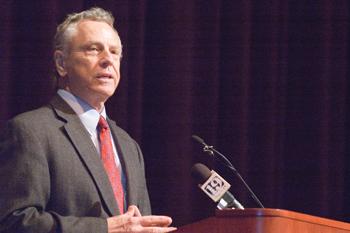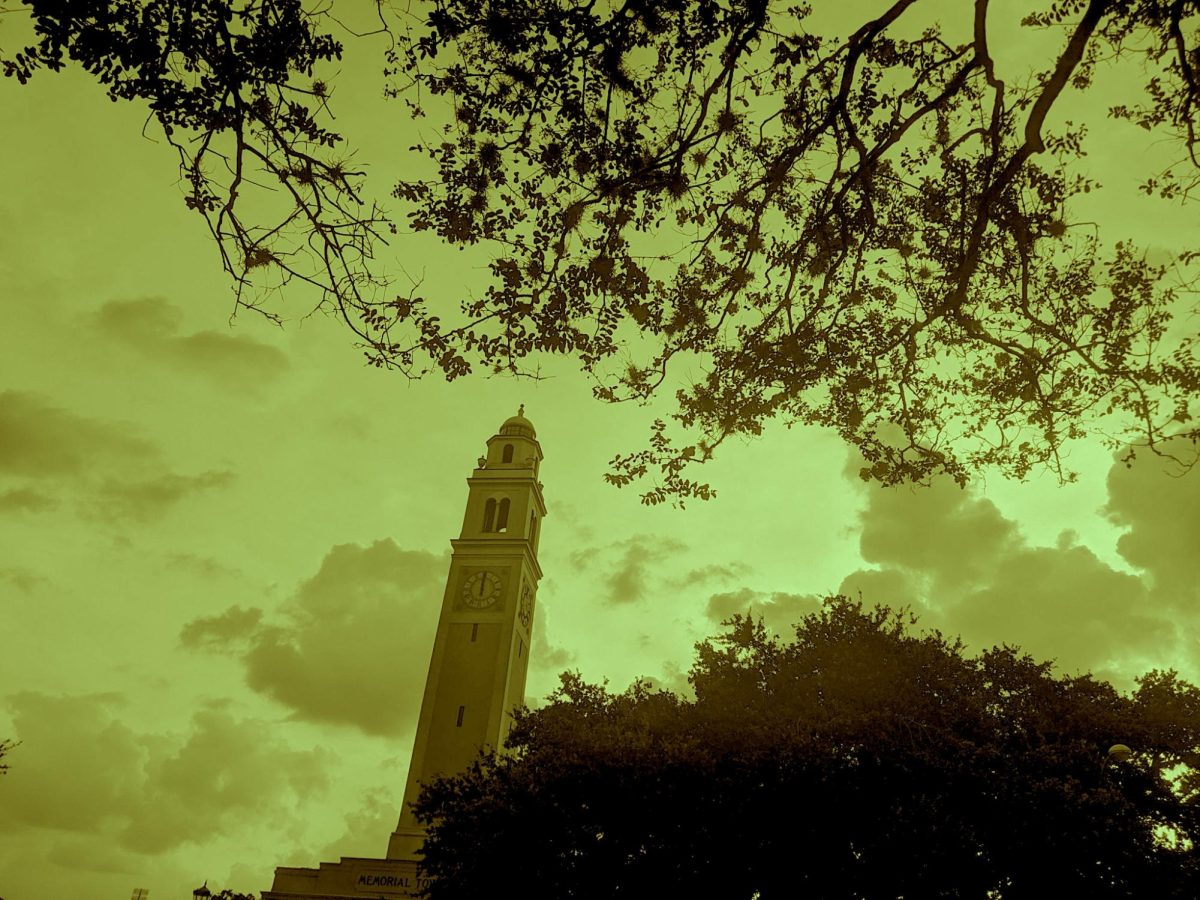Morris Dees used the life and mission of Martin Luther King Jr. to convey the civil rights movements of today during one of this year’s MLK events. Dees, who served as the keynote speaker for the Martin Luther King Jr. Commemorative Celebration on Wednesday, discussed the modern role of underrepresented cultures, such as minorities, gays and lesbians and women. Dees, a trial lawyer and co-founder of the Alabama-based Southern Poverty Law Center, fights as a social activist for minorities and underrepresented individuals and groups. Dees’ speech opened this year’s MLK celebration hosted by the Office of Multicultural Affairs. The theme was “Unmasking the Truth for Social Justice.” In his speech, Dees assured the audience that, despite legislation to help fight against racism and prejudice, it still exists today. “It is important that we’re not divided in the lines of race,” Dees said. Dees encouraged the audience to use King’s beliefs to continue the fight against bigotry. “The march for justice continues, for gays and lesbians in this country, for women, but especially on the lines of class,” Dees said. “[There are] those on one side who have money, and power and maybe good health insurance and those on the other side who don’t.” Dees encouraged people in his speech to fight for the rights of Latino immigrants living in the United States. He said that the immigrants deserve the same right as everyone to pursue the “American dream.” “As we face this time in history, we have a lot of things to be thankful for,” Dees said. “We also face over 50 hate groups in this country who organize because of the undocumented Latino population in this nation.” Dees said in his speech if King was alive today, he would fight not only for the rights of African Americans, but for all minorities, the homeless, the poor and the powerless. Audience members said Dees made a powerful and moving speech. “He talked about things that I didn’t even know,” said Kourtni Brown, kinesiology junior. “He truly inspired me to read more on African-American history because there are things that I should have known but didn’t know.” Derrick Petit, the recipient of the 2008 Martin Luther King, Jr. Humanitarian Award, said he feels very fortunate to have received the award in the same year that Morris Dees was the keynote speaker. Petit plans to work as a civil rights attorney. “[Dees’ speech] would really help our social agenda here in Louisiana and particularly at LSU,” said Chaunda Allen, director of Multicultural Affairs. Colorado Robertson, speaker of the Student Senate, said we need to do a better job in Louisiana concerning the economic indifference, the social inequality of the income and disparity in our state. “It’s very important to have a blind eye and really understand a lot of stories that you don’t get to hear on a regular basis,” said Curtis Parker, Jr. coordinator for Cross-Cultural Affairs. Parker said he was very excited to see such a diverse group participating in the event. Parker said being able to see the diversity lets the Multicultural Affairs know they are going in the right direction. Parker said there is still a lot more work to do and they are willing to work even harder to accomplish them.
—-Contact J.J. Alcantara at [email protected]
Social activist discusses role of minorities at MLK event
January 17, 2008

Morris Dees, a civil rights activist since the ’60s, spoke Wednesday at the Martin Luther King Jr. 2008 Commemorative Celebration in the Union Theater. Dees stressed the importance of using King’s beliefs to fight against bigotry.





